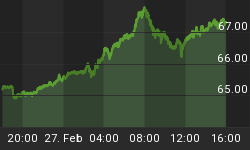"All the things they said would happen to you
Don't you know they're all coming true
Goin' nowhere fast
"Nothing's strange as when it seems
You're living out all your worst possible dreams
Goin' nowhere fast"
Beck Hansen's lyrics might have been written in the late 80s, but global stock markets were dancing to the same despondent tune during August. Gloomy sentiment about credit woes and a worsening global economic picture dampened investor sentiment, resulting in a down-month for most markets. Although the MSCI World Index (-1.6%) managed to hold its mid-July trough, the MSCI Emerging Markets Index (-8.2%) was less fortunate and recorded fresh lows for 2008.
The biggest loser for the month was the Russian Trading System Index, which declined by 16.3% on the back of increasing concerns about the broader implications of Russia's confrontation with Georgia, governance issues and lower oil prices.
Talk of government's economic stimulus measures in China failed to gain traction from investors, resulting in the Shanghai Composite Index (-13.6%) occupying the second-last position in the monthly rankings.
Thanks to Brazil, yet another BRIC country made it into the bottom three as the slide in commodity prices negatively impacted the Bovespa Index, pushing the benchmark 7.2% into the red.
The relatively stable performance of the Bombay Sensex 30 Index and an overall improvement towards the end of the month saved the SPDR S&P BRIC 40 ETF (BIK) from an even worse performance.

Notwithstanding a volatile period, the US, UK and continental European markets (with the exception of the German Xetra Dax Index) managed to close in positive territory.
Particularly noteworthy is the chart of the MSCI World Index relative to the MSCI Emerging Markets Index, showing solid outperformance by developed markets since the peaks of May 2008.

Not a single index registered a gain for the first seven months of 2008. Declines in China (-54.4%), Hong Kong (-28.2%) and Russia (-28.1%) are nothing short of a crash.
Needless to say, all stock markets, in both local currency and dollar terms, are significantly down from their respective bull market highs. It is cold comfort, but the small-cap Russell 2000 Index, with a decline of "only" 13.6%, put in the best performance since its high (recorded in July 2007 - three months prior to the US large-cap indices peaking).
Although the Shanghai Composite Index has returned a catastrophic -60.6% since its 2007 high, the Index is still up by 95.6% over the past three years, 60.6% over five years and 99.8% over 10 years. The comparative figures for the S&P 500 Index are: three years: +5.3%; five years: +25.0% and 10 years: +31.7%.

Seasonality indicates that "September has firmly secured the rank as the worst month of the year" (Stock Trader's Almanac), but that a year-end rally typically starts in late September / early October.
My views on the market were summarized in Words from the Wise on August 31, but are repeated here for the sake of completeness.
"I do believe we are still in a primary bear market where stock markets are, at best, faced with a prolonged convalescence period characterized by sub-optimal returns. Whether significant further declines will take place from these levels and valuations overshoot to bargain levels is anybody's guess.
"However, in the short term I give the nascent stock market rallies the benefit of the doubt provided the mid-July lows are sustained. For any rally to become more enduring will require further base building and an eventual shift in central bank policy to targeting GDP growth rather than inflation."


Did you enjoy this post? If so, click here to subscribe to updates to Investment Postcards from Cape Town by e-mail.















